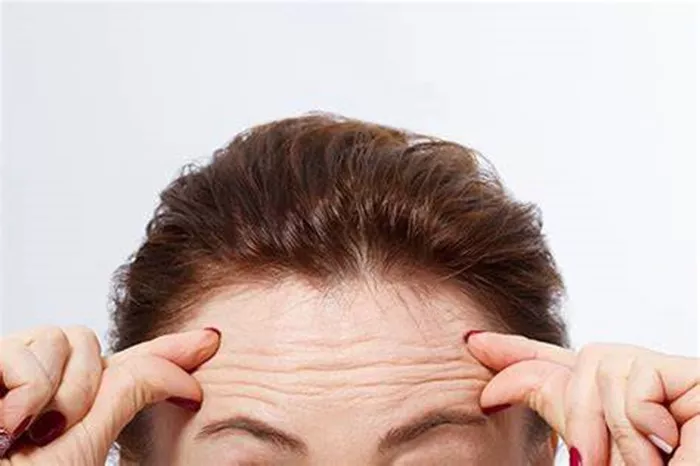Hair loss is a common concern affecting millions of people worldwide, and alopecia—a condition characterized by hair thinning or bald patches—can be particularly distressing. Many individuals seek natural remedies to support hair regrowth, and collagen has emerged as a popular supplement in recent years. But can collagen truly help with alopecia? To answer this question, we must first understand what collagen is, how it functions in the body, and its potential role in hair health.
Understanding Collagen and Its Role in the Body
Collagen is the most abundant protein in the human body, making up a significant portion of our skin, bones, tendons, and connective tissues. It acts as a structural scaffold, providing strength and elasticity to various bodily structures. There are at least 28 types of collagen, but the most common ones are Type I, II, and III. Type I collagen, in particular, is crucial for skin, hair, and nail health.
As we age, collagen production naturally declines, leading to wrinkles, joint pain, and weaker hair and nails. This decline has prompted many to turn to collagen supplements—derived from animal sources like bovine, marine, or chicken—to replenish lost collagen and support overall health.
The Connection Between Collagen and Hair Growth
Hair follicles are complex structures that rely on a steady supply of nutrients, including proteins, vitamins, and minerals, to function optimally. Since hair is primarily composed of keratin, another structural protein, the relationship between collagen and hair growth becomes particularly interesting.
Collagen provides amino acids such as proline, glycine, and hydroxyproline, which serve as building blocks for keratin production. Additionally, collagen supports the health of the dermis—the skin layer where hair follicles reside. A healthy dermis ensures proper blood circulation, nutrient delivery, and follicle strength, all of which are essential for robust hair growth.
Some studies suggest that collagen may help reduce oxidative stress in the scalp, which can contribute to hair thinning. Free radicals and inflammation are known to damage hair follicles, accelerating hair loss. Collagen’s antioxidant properties may help counteract these effects, creating a healthier environment for hair regeneration.
Collagen and Alopecia: What Does the Research Say?
While collagen’s general benefits for skin and hair are well-documented, its specific effects on alopecia are still under investigation. However, several mechanisms suggest that collagen supplementation could be beneficial for those experiencing hair loss:
Strengthening Hair Follicles
Collagen helps maintain the structural integrity of hair follicles. Weakened follicles are more prone to miniaturization—a process seen in androgenetic alopecia (male and female pattern baldness) where follicles shrink over time, producing thinner, shorter hairs. By supporting the extracellular matrix around follicles, collagen may help delay this process.
Improving Scalp Health
A healthy scalp is crucial for preventing hair loss conditions like alopecia areata, an autoimmune disorder where the immune system attacks hair follicles. Collagen’s role in skin hydration and repair may help maintain a balanced scalp microbiome, reducing inflammation and promoting follicle health.
Enhancing Nutrient Absorption
Collagen contains amino acids that aid in the synthesis of other proteins necessary for hair growth. Additionally, it may improve gut health, enhancing the absorption of essential vitamins and minerals like biotin, zinc, and iron—all of which play a role in preventing hair loss.
Reducing Age-Related Hair Thinning
Since collagen production declines with age, supplementing with collagen may help counteract age-related hair thinning. Some studies have shown that hydrolyzed collagen peptides can stimulate fibroblast activity, which supports tissue repair and may indirectly benefit hair density.
How to Use Collagen for Hair Loss
If you’re considering collagen supplementation to support hair growth, there are several ways to incorporate it into your routine:
Collagen Supplements
The most common forms are collagen peptides (hydrolyzed collagen), which are easily absorbed by the body. These can be taken as powders, capsules, or liquid supplements. Marine collagen, sourced from fish, is particularly rich in Type I collagen and is often recommended for skin and hair health.
Dietary Sources
Bone broth, chicken skin, fish, and egg whites are natural food sources of collagen. Consuming a diet rich in vitamin C (which aids collagen synthesis) and protein can further enhance its benefits.
Topical Applications
While oral collagen is more effective for systemic benefits, some hair care products now include collagen to strengthen strands and improve scalp hydration. Look for shampoos, conditioners, or serums containing collagen or collagen-boosting ingredients like peptides.
Potential Limitations and Considerations
While collagen shows promise in supporting hair health, it is not a cure-all for alopecia. Several factors influence hair loss, including genetics, hormonal imbalances, stress, and underlying medical conditions. Collagen may help improve hair thickness and reduce shedding, but it is unlikely to fully reverse advanced balding or autoimmune-related alopecia without additional treatments.
Additionally, not all collagen supplements are created equal. Quality, sourcing, and bioavailability vary among brands, so choosing a reputable product is essential. Those with allergies to marine or bovine sources should opt for alternative collagen types or focus on collagen-boosting nutrients instead.
Conclusion
Collagen plays a vital role in maintaining healthy hair follicles, scalp integrity, and overall hair strength. While more research is needed to confirm its direct effects on alopecia, existing evidence suggests that collagen supplementation can be a valuable addition to a holistic hair care regimen.
For those struggling with hair loss, combining collagen with other proven treatments—such as minoxidil, platelet-rich plasma (PRP) therapy, or nutritional adjustments—may yield the best results. Always consult with a healthcare provider before starting any new supplement, especially if you have an underlying medical condition.
In the quest for thicker, healthier hair, collagen is certainly a promising ally. By nourishing the body from within, it supports the foundational structures that keep hair growing strong—proving that sometimes, the key to luscious locks lies in the very proteins that hold us together.
Related Topics:
- Why Is My Hair Coming Out in Clumps?
- Why Is My Hair Turning Grey and Falling Out? A…
- When Do You Start Losing Hair Postpartum?


